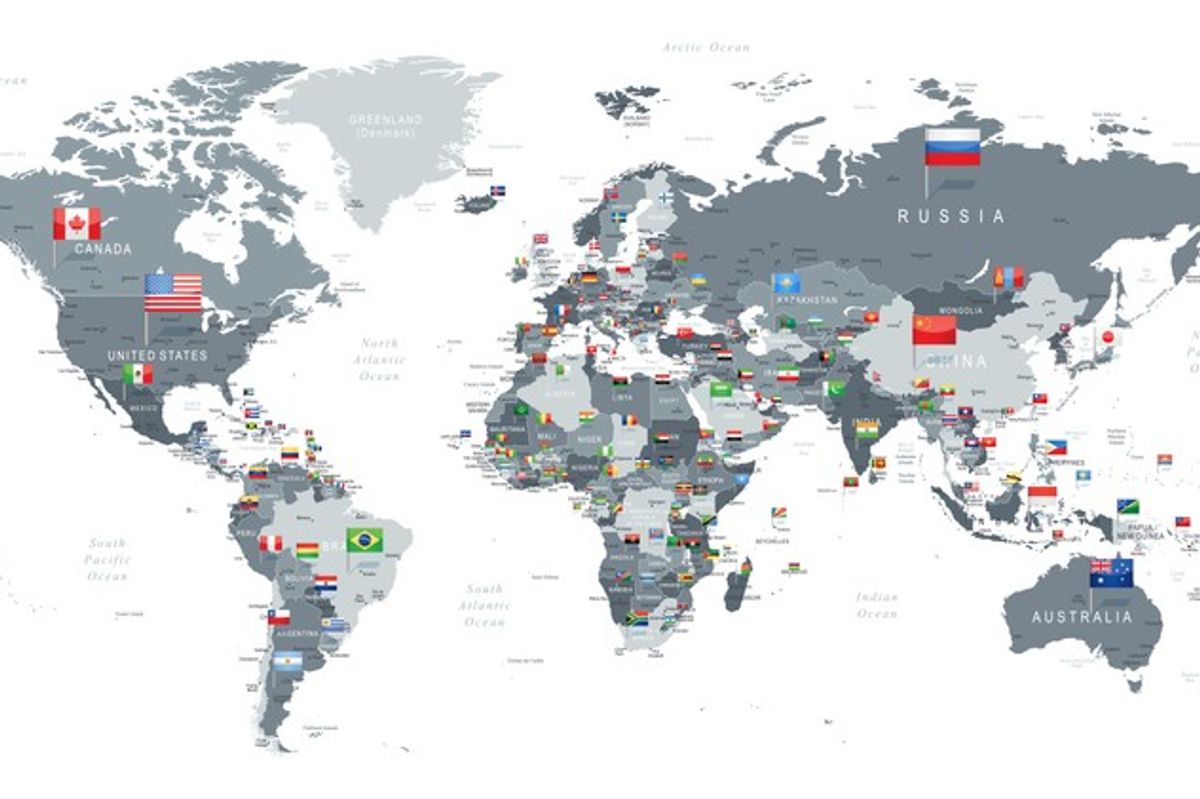The result of last week’s UK referendum on whether to remain in the European Union (EU) has produced shock-waves around the world and has raised all kinds of questions about the country the UK will now become. The narrative promoted by those politicians in favour of a “leave” vote – the Brexiteers – was of a confident outward-facing UK which, freed from the dead hand of a sclerotic and inward-looking Brussels, would optimize its considerable potential as a global trading nation. The arguments of the “remain” camp about the dangers and uncertainties of leaving the EU were dismissed as “project fear.” Yet a breakdown of voting patterns shows that the key driver for those voting to leave the EU – predominantly old, white, and working class – was precisely fear: fear of globalization and immigration, the response to which has been a narrow tribalism totally at odds with the narrative of the Brexiteers.
The other key driver to the vote to leave the EU was a wave of anti-establishment sentiment that has gripped the UK and the western world more generally. The leave vote was an inchoate protest against a political elite that was seen to be out of touch with its electoral base. Indeed, one of the biggest surprises of the outcome was the degree to which the Labour Party (which supported “remain”) lost support in what had previously been its heartland. Within the EU, the UK economy has prospered. But as part of a long process of de-industrialisation and globalization, many secure and well-paid working class jobs have been replaced by jobs offering lower wages and less security. Except for the top one percent of earners, incomes have remained flat for many years.
The vote has thrown the UK political system into turmoil. Following Prime Minister David Cameron’s announcement that he would step down in October, the fight for his succession looks to be bitter. Many Cameron supporters have declared their intention to “get” Boris Johnson, leader of the Brexit campaign and seen by many as Cameron’s heir-presumptive, for what they perceive as an act of treachery. Meanwhile, the opposition Labour Party has become engulfed in a leadership crisis of its own, with many members of the shadow cabinet openly challenging the fitness of Jeremy Corbyn to lead the party. Corbyn campaigned for a “remain” vote, but his lackluster performance reflected his deep reservation as a left-wing ideologue about a capitalist EU. So at a time when the UK needs firm and resolute political leadership, the prospect of that happening seems remote.
A further complication is that Scotland voted overwhelmingly to remain in the EU. Scottish First Minister Nicola Sturgeon has already called for a second referendum on Scottish independence, which she appears to feel increasingly confident of winning. Meanwhile, nationalist politicians in Northern Ireland have called for a united Ireland. By the time Brexit actually happens, the term “United Kingdom” could well be a misnomer.
There is considerable uncertainty about how the process of separation from the EU should proceed. The referendum in and of itself has no significance until a British government formally opts to enact Article 50 of the Lisbon Treaty, which fires the starting gun for a process that, under the terms of the Treaty, should be concluded within two years. Nobody sees that deadline as remotely realistic given the depth and complexity of the UK’s engagement with Europe. Nor is it clear what trading relationship an independent UK would have with the EU – or any other country or trading bloc. Reactions by EU leaders to the UK decision have been mixed. But it is already becoming clear that they will drive a hard bargain with the UK, if only to discourage other member states from following the UK’s example (populist parties in France, Italy, and the Netherlands have already demanded their own referenda).
Once Article 50 has been formally invoked and the separation process begins, the UK will remain a full member of the EU until the negotiation is concluded. That period will at least enable those most directly affected by the decision – other EU nationals working in the UK and the 1.5 million British expatriates living in Europe – to consider their options. It remains to be seen what the impact will be on the UK economy, but early signs are that some potential investors might be discouraged by the continuing uncertainty. In the short term, it is hard to see the UK economy doing anything other than contracting. A recession is a real possibility. Brexit leader Boris Johnson has said that in the event of a recession he will apologise. No doubt that will come as huge relief to those who lose their livelihoods.
Internationally the impact on the UK may take more time to feed through. But all the signs are that the UK – if indeed it remains a single political entity – will be seen as diminished and less strategically relevant. There is a presumption that the UK – as a major global economy and a front-rank military, intelligence, and diplomatic power – will still exercise significant global impact. But much will depend on how the issues outlined above are resolved. And there is a growing feeling within western policy-making circles that the UK has been less active in a range of international negotiations for some time. The impression increasingly is that the UK’s diplomats always turn up but are notably less engaged than in the past and concerned more with process than policy. The U.S. has until now always turned to the UK for support when the chips were down. It remains to be seen to what degree it will continue to do so.
The extent to which the UK remains a stable and prosperous country will ultimately depend more on its domestic policies than on what happens internationally. And in terms of the UK’s international posture, a continuation of something close to the status quo is not unimaginable. But Brexit is taking place at a time when a global power shift from West to East is well under way and, with it, a shift in values away from the liberal democratic consensus that drove the creation of post-war global institutions. Historians may well look back at Brexit as an inflection point that marked the beginning of the end of a western-dominated world order.














